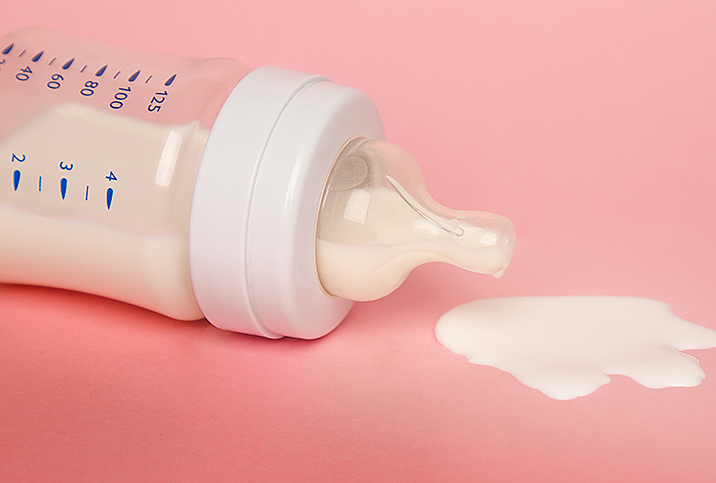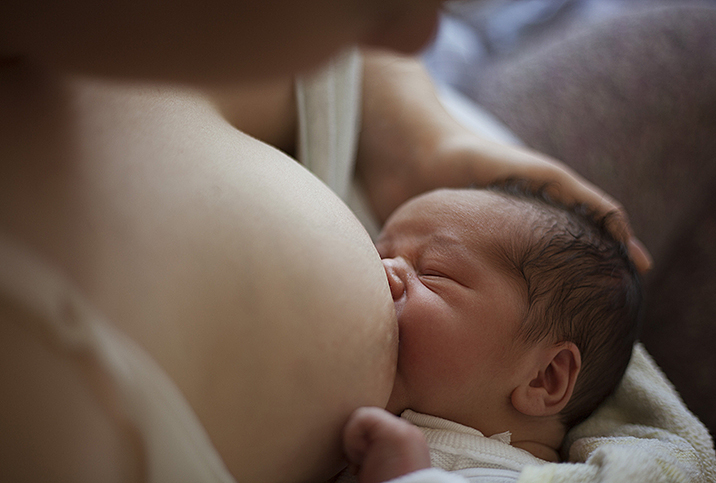When Breast Isn't Best: Reasons You Might Not Breastfeed

Breast milk offers unique benefits to babies, namely providing the antibodies it is infused with from the mother’s immune system.
However, there are several medical instances when breastfeeding is not recommended. Mothers who are infected with certain viruses (including HIV), taking particular medications or undergoing radiation therapy should not breastfeed. In addition, infants with a genetic condition called galactosemia must use formula, because this metabolic disorder prevents them from surviving on human breast milk.
Sometimes, despite a mom’s best efforts to adjust her diet and positioning, a baby simply won’t tolerate breast milk well or even be able to latch on to the mother’s nipple effectively. Some mothers simply don’t produce a sufficient supply of breast milk to nourish their baby by breastfeeding alone, and supplementing with formula may be the preferred solution.
When breastfeeding just isn’t working
Most women initiate breastfeeding with the intent to continue long term. Sometimes, however, breastfeeding can be painful and discouraging, especially in the beginning.
The problems begin because it may take up to three days for mothers to start producing milk, during which time newborns can be fussy and distressed. Mothers may be trying to breastfeed exclusively, taking full responsibility to wake up and feed the baby, who may demand feedings every hour and all through the night. This can make it very difficult for a mother to rest and fully recover from pregnancy and childbirth before she’s on a full-time feeding schedule.
To counter these demands on their time, some moms pump their milk ahead of time, but this isn’t necessarily easier. To maintain an adequate milk supply, a mother must pump frequently. It’s not always convenient to take time away from work or caring for other children (and yourself) to attach yourself to a pump for several hours each day and night.
Pumping, too, can be painful and comes with the same issues associated with breastfeeding, including mastitis, which is a painful recurring infection of the breast tissue.
Is formula bad for babies?
Infant formula supports healthy growth and development just like breast milk does.
Formula can’t replicate the specific immune-boosting components in breast milk, but there are cases where formula is actually preferred. Some babies require infant formula due to allergies or dietary needs. Formula provides vitamin D, whereas breastfed babies generally need a vitamin D supplement. If your baby has trouble digesting infant formula, try experimenting with different variations and brands to find the best fit.
Several factors impact the strength of a baby’s immune system. Vaginal deliveries and living in a home with pets or older siblings expose a baby to pathogens and allergens that help build immunity. Pregnant women should get their recommended vaccinations, including the flu shot, to provide partial immunity to their baby in utero. Following the vaccine schedule advised by a pediatrician plays a crucial role in protecting the baby against dangerous diseases.
For mothers who would like a third option beyond breastfeeding or formula, pasteurized human breast milk may be purchased through the Human Milk Banking Association of America. Talk to your pediatrician to explore your formula options or find a reputable and safe breast-milk source for your baby. It is important to go through a reliable milk bank, because there is a great risk of infectious disease transmission through unreliable sources.
Embrace a ‘fed is best’ mentality
Breastfeeding is a significant commitment that some women aren’t willing to make or simply can’t do. While plenty of mothers find fulfillment in breastfeeding, others don’t. Breastfeeding prolongs the amount of time a woman must share her body with her infant. After nine months of pregnancy, breastfeeding continues to dictate a women’s schedule, food choices, alcohol intake and sleep habits.
While it may sound selfish to consider these factors, a mother’s mental and emotional health do matter. Feeling rested and in control of your own body can have a greater impact on successful parenting than your feeding choices.
Formula is a safe and viable alternative that can be introduced as soon as a baby is born or during the first year of life. Many issues factor into a woman’s choice about how to feed her baby. Ultimately, though, as long as your baby receives necessary nutrients (through breast milk, formula or a combination of both), there should be no reason at all to feel guilty about the decision you make.
















